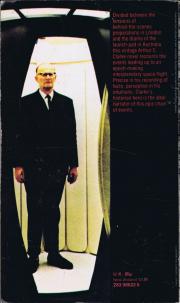

In 1945, Wireless World magazine published his article “Extra-Terrestrial Relays,” in which Clarke theorized on how a geostationary satellite system could be used to transmit radio and television signals around the world. His wartime experiences would prove fundamental in two of Clarke’s earliest offerings as a writer. From 1941 to the war’s end, he was a technician with the Royal Air Force and among the first to use radar information to guide aircraft landings in unfavorable weather conditions. Though these early endeavors were interrupted with the coming of World War II, Clarke’s service during the conflict would present him with the opportunity to indulge his technological aptitude.

Clarke contributed articles to the group’s newsletter and also began his first forays into science fiction. He had not lost his fascination with the stars, however, and he soon became a member of the British Interplanetary Society, which championed the notion of space travel long before it was considered plausible. Early ExplorationsĪrriving in London, Clarke took on a job as a government bureaucrat. After graduating from middle school in nearby Taunton, Clarke left home to find work in 1936. The eldest of four children born into a farming family, Clarke became fascinated with science and astronomy at an early age, scanning the stars with a homemade telescope and filling his head with sci-fi tales from magazines like Astounding Stories.Īfter his father suddenly passed away, the financial hardships his family endured precluded Clarke from attending university despite his bright, inquisitive mind. Early LifeĪrthur Charles Clarke was born on December 16, 1917, in the coastal town of Minehead in southwestern England. Clarke died on March 19, 2008, in Sri Lanka. Clarke authored nearly 100 books, and many of his ideas around science had links to future technological innovations.

He wrote the novels Childhood’s End and 2001: A Space Odyssey, which was adapted into a film with Stanley Kubrick. Clarke established himself as a preeminent science fiction and nonfiction writer during the mid-20th century.


 0 kommentar(er)
0 kommentar(er)
